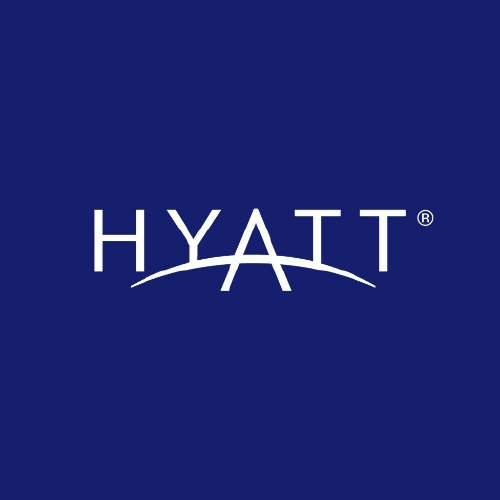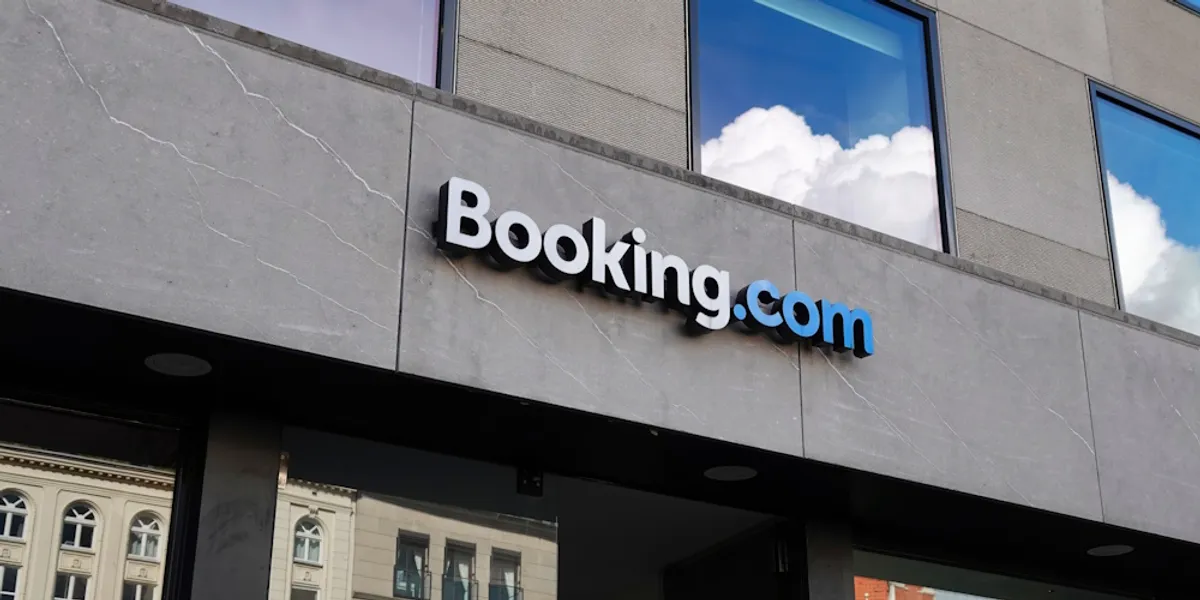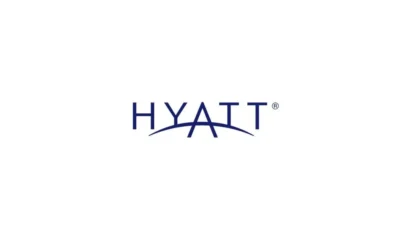Hotels & Accommodations
Strong Luxury Performance and Strategic …

-
RevPAR Growth: System-wide RevPAR growth of 1.6% for the quarter, or 2.2% when adjusted for the Easter shift.
-
Luxury Brand Performance: Luxury brands’ RevPAR increased over 5% in the second quarter.
-
All-Inclusive Net Package RevPAR: Increased 6% compared to the second quarter of 2024 in the Americas.
-
Net Rooms Growth: Achieved net rooms growth of 11.8% during the quarter, including approximately 2,600 rooms from the Playa acquisition.
-
Gross Fees: Reported gross fees of $301 million, up 9.5%.
-
Adjusted EBITDA: Total adjusted EBITDA was $303 million, an increase of approximately 9% after adjusting for assets sold in 2024.
-
Total Liquidity: Approximately $2.4 billion, including $1.5 billion in revolving credit facility capacity and $900 million in cash and equivalents.
-
Full Year 2025 RevPAR Outlook: Expected range of 1% to 3% growth.
-
Adjusted Free Cash Flow: Expected to be in the range of $450 million to $500 million.
-
Capital Returns to Shareholders: Expected to return approximately $300 million in 2025, inclusive of share repurchases and dividends.
Release Date: August 07, 2025
For the complete transcript of the earnings call, please refer to the full earnings call transcript.
-
Hyatt Hotels Corp (NYSE:H) successfully closed the acquisition of Playa Hotels & Resorts, adding 15 all-inclusive resorts to its portfolio.
-
The company entered into an agreement to sell the Playa real estate portfolio for $2 billion, with potential additional earnings of $143 million.
-
Hyatt Hotels Corp (NYSE:H) reported system-wide RevPAR growth of 1.6% for the quarter, with luxury brands showing strong performance.
-
The World of Hyatt loyalty program continues to grow, with membership increasing by 21% year-over-year, reaching over 58 million members.
-
Net rooms growth was 11.8% during the quarter, with significant expansion in Europe and Asia, and a strong development pipeline of approximately 140,000 rooms.
-
Business transient RevPAR was flat, with a 1.5% decline in the United States, particularly affecting select service hotels.
-
The third quarter faces challenging year-over-year comparisons due to special events and calendar shifts, impacting growth expectations.
-
Lower chain scales in the US underperformed, affecting overall RevPAR growth, particularly in the upscale segment.
-
The distribution segment’s adjusted EBITDA was flat, with lower booking volumes in the four-star and below segments.
-
Visibility in Greater China remains limited, with RevPAR growth expected to be only in the low single digits for the remainder of the year.
Hotels & Accommodations
Luxury hotels in London become affordable as competition heats up and demand cools

With more luxury openings driving up competition and economic uncertainty tamping down demand, London’s hotels are recalibrating their prices. The result is the first real deflation in luxury hospitality since the post-Covid “revenge travel” boom. Take the five-star Raffles at the OWO, which made headlines with its then-unprecedented £1,100 starting price when it opened in 2023. Search for a basic room now, and you might find one available for £880—20% less than its original going rate.
A similar story is unfolding across other top hotels in London. At the Peninsula London, rooms can be found for around £900, down from the £1,300 the hotel was charging when it opened two years ago. One night at the all-suite Emory Hotel in Knightsbridge can be booked for £936, while last year’s debut prices was £1,600.
Also read | 6 foreign countries Indian passport holders can travel to and all you need is ₹50,000
And it’s not just the relative newcomers that are adjusting their prices—a room at the Dorchester can be booked for £750, when the starting room rates were above £1,000 last year. Data shared by Fora Travel, a “host agency” for thousands of travel advisers, shows average nightly rates at five-star London properties are anywhere from 20% to 50% lower than the same period in 2024.
“The drop in prices is largely driven by heightened competition,” says Fora adviser Aleksandra Coric. To wit, London’s parade of ultraluxury openings is showing no signs of slowing down.
The long-anticipated, 144-room Chancery Rosewood at the old US Embassy in Mayfair is now taking reservations—it will open in September—and later this year, the 109-room Six Senses will follow suit, serving as the anchor for the regeneration of the Bayswater neighborhood just north of Hyde Park. Then 2026 will see Auberge Hotels make its London debut: It’s transforming a 102-room grand Palladian mansion with connections to the royal family. A third Mandarin Oriental property and a Waldorf Astoria are on the way too. It all adds up to more than a thousand new top-tier rooms in the next two years in what’s already a crowded market.
Coric says the market correction is largely about supply and demand, with global economic uncertainty making it difficult for the travel industry to sustain the record-breaking figures of the last few years. The ramifications of all that are most pronounced at the highest end of the market—likely as aspirational travelers abandon their splashiest plans in favor of more moderate budgets.
Also read | Visa fraud: British High Commission extends campaign to raise awareness in Punjab and Haryana
Tom Cahalan, co-founder of luxury travel agency Dorsia Travel, posits that the sky-high rates in 2024 were also something of a failed experiment, with hoteliers trying their luck to see just how much consumers were willing to shell out. “Even our ultra-high-net-worth clients still want value for money,” he says, and the prevailing consumer sentiment has been that hotels charging upwards of $1,000 aren’t always delivering an experience that’s worth the added cost.
Cahalan says it’s ultimately easier for hotels in seasonal destinations, like the Amalfi Coast or the south of France, to maintain sky-high room rates, simply because their limited availability effectively creates a scarcity effect. By contrast, he explains, London is a year-round destination.
Some of the newcomers who are vying to be the best of the best are still betting they can command blockbuster prices. The new, all-suite Chancery Rosewood has starting prices of £1,280 a night in September, for instance. But the new Six Senses will likely price lower, with executives from the wellness-focused brand saying that the London property is aiming to charge rates of around £700.
Cahalan sees a silver lining to the price wars: He argues that all the competition has helped London leap-frog Paris to become the world’s best city for five-star hotels. And if you factor in the competition across the channel, Britain’s bastions of luxury look like relative bargains. After all, the best hotels in Paris—be it Le Bristol or the Ritz or Rosewood’s Hotel de Crillon—are bucking the logic that’s prevailing in the Big Smoke. The prices there? Easily $2,200 a night.
Hotels & Accommodations
Over 10,000 European hotels join legal action against Booking.com

Europe: More than 10,000 hotels across Europe have joined the collective legal action against OTA Booking.com, expanding on a case first reported in June.
The claim challenges the platform’s long-standing “best price” clause, also known as a Platform Most Favoured Nation (PMFN) clause, which required accommodation providers to display the same or lower rates on Booking.com than on their own websites or rival platforms.
The clause was removed in 2024 to comply with the EU’s Digital Markets Act, but damages are being sought for the period between 2004 and 2024. Proceedings are taking place in the Netherlands, where Booking.com is headquartered, and are being coordinated by the Stichting Hotel Claims Alliance with support from HOTREC.
The case was initially filed by more than 25 national hotel associations and is supported by a September 2024 European Court of Justice ruling, which found that parity clauses may reduce competition. Booking.com has previously stated that the clauses help ensure fair competition and prevent “free-riding” by travellers.
Highlights:
• Over 10,000 hotels have joined a collective legal action against Booking.com.
• The case focuses on the OTA’s “best price” / PMFN clause, in place from 2004 to 2024.
• The clause was removed last year following the EU’s Digital Markets Act.
• The outcome could set a precedent for other accommodation sectors, including short-term rentals.
Hotels & Accommodations
Journey Secures $7.7 Million to Expand AI-Driven Loyalty Platform for Independent Hotels |
By Lea Mira, HTN staff writer – 8.7.2025
Journey, a New York-based loyalty platform for independent hotels, resorts, and private rentals, has raised $7.7 million in seed funding to support the expansion of its guest rewards program and AI-enabled technology platform for hoteliers. The round was co-led by venture capital firms Lerer Hippeau and Slow Ventures, with additional participation from notable investors including Brian Kelly, founder of The Points Guy; Chris Burch, co-founder of Tory Burch; entrepreneur Kim Perell; and early-stage firm Bulletpitch.
The company describes itself as the first loyalty platform purpose-built for independent hospitality operators, combining a consumer-facing rewards model with a backend technology suite. The funds will be used to scale both the guest-facing loyalty program and the operator tools, which together form what the company calls its Hospitality Experience Platform (HXP). Journey’s network currently includes more than 1,400 properties worldwide, ranging from luxury hotels such as Nihi Sumba in Indonesia to boutique accommodations like Dunton in Colorado and Castle Hill Inn in Rhode Island.
Unlike legacy hotel loyalty programs operated by major chains, which tend to emphasize consistency and brand-level status, Journey’s program is positioned around personalization and discovery. Members earn five times more points for direct bookings with participating properties than for third-party bookings, with an option to redeem pending points during their stay—a feature the company says addresses one of the most common pain points for travelers accustomed to delayed or limited redemption options.
For operators, Journey’s AI-enabled platform is designed to streamline guest engagement, boost direct bookings, and convert fragmented data into real-time hospitality actions. By combining loyalty features with automation tools, Journey aims to give independent hotels access to functionality that has typically only been available to large branded chains with proprietary tech stacks.
Founder and CEO John Sutton said the company’s vision is to reimagine loyalty in a way that supports both guest preferences and operator performance. “We have created a platform where guests are rewarded for choosing character-rich, independent stays, and hotel and short-term rental operators can finally access technology to deliver exceptional experiences,” said Sutton.
Lerer Hippeau Managing Partner Eric Hippeau, who previously served on the boards of Starwood and Marriott, said Journey’s model reflects significant shifts in both consumer travel preferences and operator needs. “Guests and hoteliers alike will benefit immensely,” he said.
Slow Ventures Managing Director Kevin Colleran also emphasized the value to previously underserved travelers who may have opted for chain hotels in the past to retain loyalty benefits. “This will help so many hotels that were previously overlooked by travelers like me who were always forced to stay at the big chains,” he said.
While Journey is entering a competitive segment of the hotel technology space, it differentiates itself through its dual focus on loyalty and automation. Existing platforms that offer loyalty solutions for independents, such as The Guestbook or Stash Hotel Rewards, typically focus on points or cash-back models but offer less integrated technology. Others, like Preferred Hotels & Resorts’ I Prefer program, support high-end independents but operate within a more traditional framework. Journey is positioning itself as a modern alternative built on AI infrastructure and a shared currency system.
In addition to hotels, Journey’s inclusion of short-term rentals in its network broadens its reach into a category that, until now, has lacked meaningful loyalty integration. The company has not announced partnerships with PMS or CRM vendors, though Sutton has indicated future integrations are on the roadmap.
Journey is currently offering an early access program for hotels and private rental operators. The company’s stated goal is to build a loyalty ecosystem that rewards both guest behavior and brand diversity, offering a more flexible and technology-forward alternative to the points programs of legacy hotel chains.
Related
-

 Brand Stories3 weeks ago
Brand Stories3 weeks agoBloom Hotels: A Modern Vision of Hospitality Redefining Travel
-

 Brand Stories2 weeks ago
Brand Stories2 weeks agoCheQin.ai sets a new standard for hotel booking with its AI capabilities: empowering travellers to bargain, choose the best, and book with clarity.
-

 Destinations & Things To Do3 weeks ago
Destinations & Things To Do3 weeks agoUntouched Destinations: Stunning Hidden Gems You Must Visit
-

 Destinations & Things To Do2 weeks ago
Destinations & Things To Do2 weeks agoThis Hidden Beach in India Glows at Night-But Only in One Secret Season
-

 AI in Travel3 weeks ago
AI in Travel3 weeks agoAI Travel Revolution: Must-Have Guide to the Best Experience
-

 Brand Stories1 month ago
Brand Stories1 month agoVoice AI Startup ElevenLabs Plans to Add Hubs Around the World
-

 Brand Stories4 weeks ago
Brand Stories4 weeks agoHow Elon Musk’s rogue Grok chatbot became a cautionary AI tale
-

 Brand Stories2 weeks ago
Brand Stories2 weeks agoContactless Hospitality: Why Remote Management Technology Is Key to Seamless Guest Experiences
-

 Asia Travel Pulse1 month ago
Asia Travel Pulse1 month agoLooking For Adventure In Asia? Here Are 7 Epic Destinations You Need To Experience At Least Once – Zee News
-

 AI in Travel1 month ago
AI in Travel1 month ago‘Will AI take my job?’ A trip to a Beijing fortune-telling bar to see what lies ahead | China



You must be logged in to post a comment Login